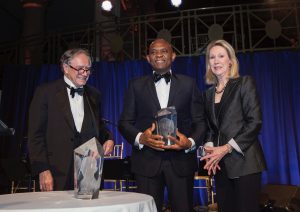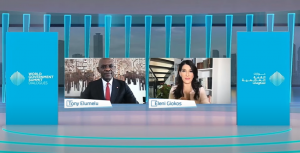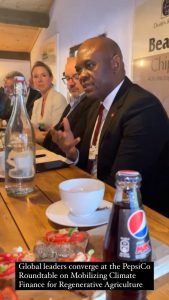The beginning of the year 2020 which also marked the start of a defining decade ushered in a series of dreadful disruptions. Unlike the 2008 global financial crisis where Africa was largely decoupled from the thick of the crisis and managed to muddle through fairly unscathed, this time around Africa holds the weakest end of the stick. The Covid19 crisis has unleashed severe devastation and caused an economic crisis, and for the first time in 25 years the African economy will contract, falling into a depression that will likely last for years.
In the wake of covid19 there has been an increased call to identify, target and provide palliative support to the most vulnerable in the form of stimulus packages, cash transfer, grains, foodstuff, and welfare materials. But while these immediate humanitarian interventions are important and will certainly provide needed succour, they are short term at best and will not address or resolve the root causes of the unfortunate African situation.
Even before the pandemic, the African economy was already in dire straits evidenced by endemic poverty, chronic unacceptable unemployment, especially sky-high youth unemployment. With over 80% of the population living from hand to mouth in daily toil and hustle, and two-thirds of all African households in darkness without access to basic electricity, there is an urgent need for a new African order.
Our continent can no longer afford the costly and dangerous pattern of policy myopia from our leaders. We must collectively shun opportunistic populism and boldly confront the hard job of fixing the underlying structural dysfunction. The easiest escape is to pile up debts and increase debt liability. But this is the same circularity that has led Africa to this current state of embarrassment where only a few years after the massive debt cancellation and relief programme from our creditors, we are again pleading for debt relief. How and when can Africa escape this perpetual circle of dysfunction?
Our litany of socioeconomic issues – unacceptable unemployment rate, endemic poverty, paucity of infrastructure, lack of basic power, broken health systems – culminate in an unsustainable cycle of doom. The covid19 pandemic presents a bittersweet moment of clarity and reflection which we must seize to reset our continent. It provides the opportunity to finally place Africa on the right path of sustainability built on the bedrock of competitiveness.
We can engender this African competitiveness by sustained investment in basic infrastructure, electricity, internet access and digital connectivity, and most importantly by enabling and encouraging entrepreneurship. This combination will provide economic hope and opportunity that will productively engage our young Africans who account for over 60% of our 1.3b population. This is the only way we can reset the economy, create employment, eliminate poverty, generate revenue and attract capital to the continent.
In the near future, African currencies will depreciate significantly, and servicing our external debts will become even more of a challenge. Today, many African countries already spend more annually on debt servicing than on education, healthcare and social welfare combined. Therefore to mobilize the level of finance that will give Africa room to begin this hard task of resetting, will require a Marshall plan, akin to America’s Marshall Plan for Europe after World War II. This Marshall Plan for Africa will be in collaboration with the World Bank, IMF, G20 countries and all other relevant agencies but must be led by African multilateral financial institutions as in the case of AFREXIM under the leadership of Prof. Okey Oramah, whose efficient and immediate deployment of US$3 billion to finance and support trade and SME business through African banks, is commendable and deserves emulation.
While we continue to call on these international institutions – International Monetary Fund, the World Bank Group, the African Development Bank, and the Islamic Development Bank to accelerate and expand their efforts in supporting Africa’s recovery, charity must begin at home. If Africa does not step up its own efforts to support itself and if this effort is not Africa-led, then no amount of external assistance will be enough.
Finally, this new Africa order must embrace the new normal. The disruptions we have seen across sectors (healthcare, logistics, supply chain, digital economy, IT) are here to stay. This presents a unique opportunity for a united Africa, a strong regional bloc acting in a coordinated fashion in response to this new era. As globalisation, trade and foreign policy adjusts in response to these times, Africa will only enjoy more traction, increased leverage and more influence by forging a united front. This is the time for the continent to fully leverage its competitive advantage in agriculture, through focused investments in mechanization, storage facilities, logistics, pest control, quality assurance, and processing, while strengthening our expertise in textile, manufacturing, supply chain etc.
An urgent call for a new African Order I was happy to share these thoughts at the #NYFInstitute with my good friends Tidjane Thiam and Ngozi Okonjo-Iweala, who are doing great jobs as envoys of the African Union, and mobilising private sector capital for Africa. At the Tony Elumelu Foundation, we know what well targeted capital can do as we continue to witness the impact of our US$100million investment in Africa’s youth and seeing them build businesses that employ others. This pandemic is an opportunity to reset Africa, and we must all take full advantage.



